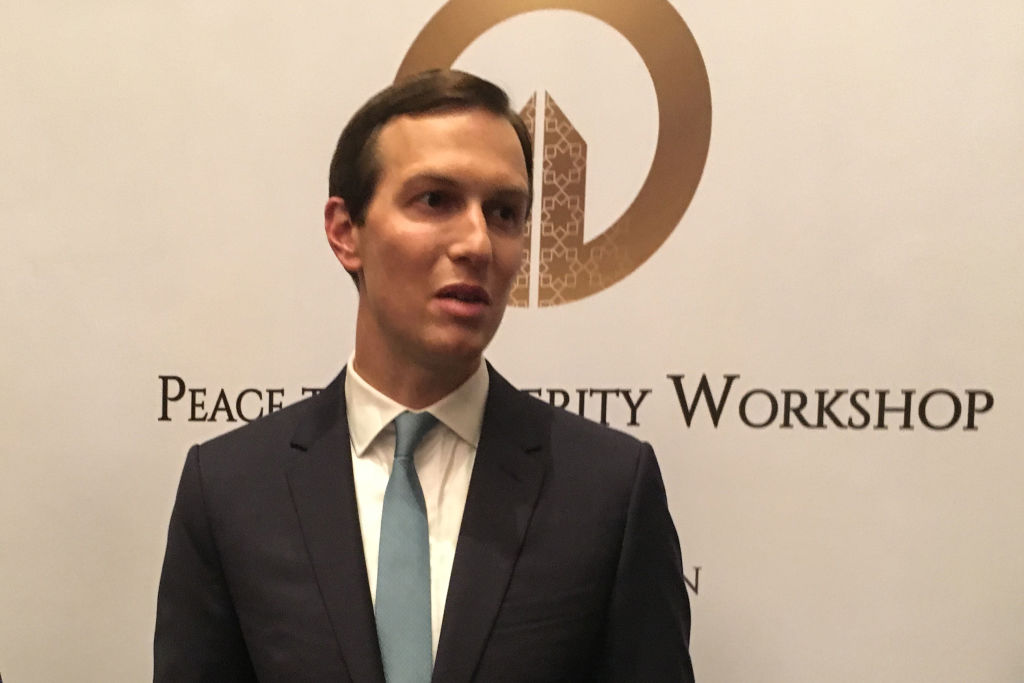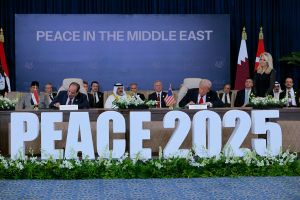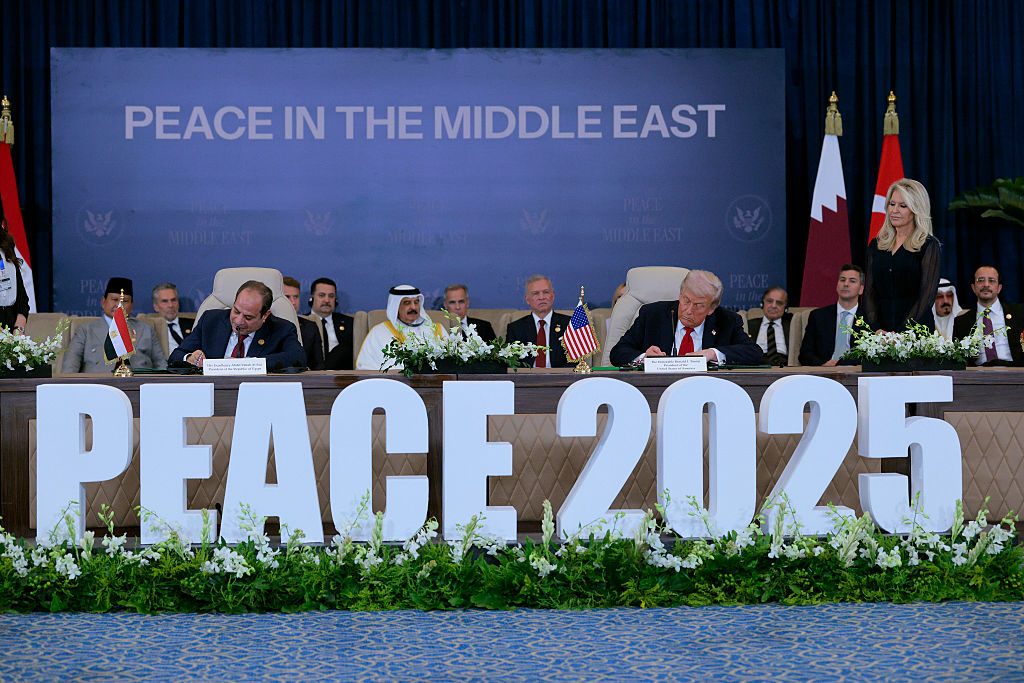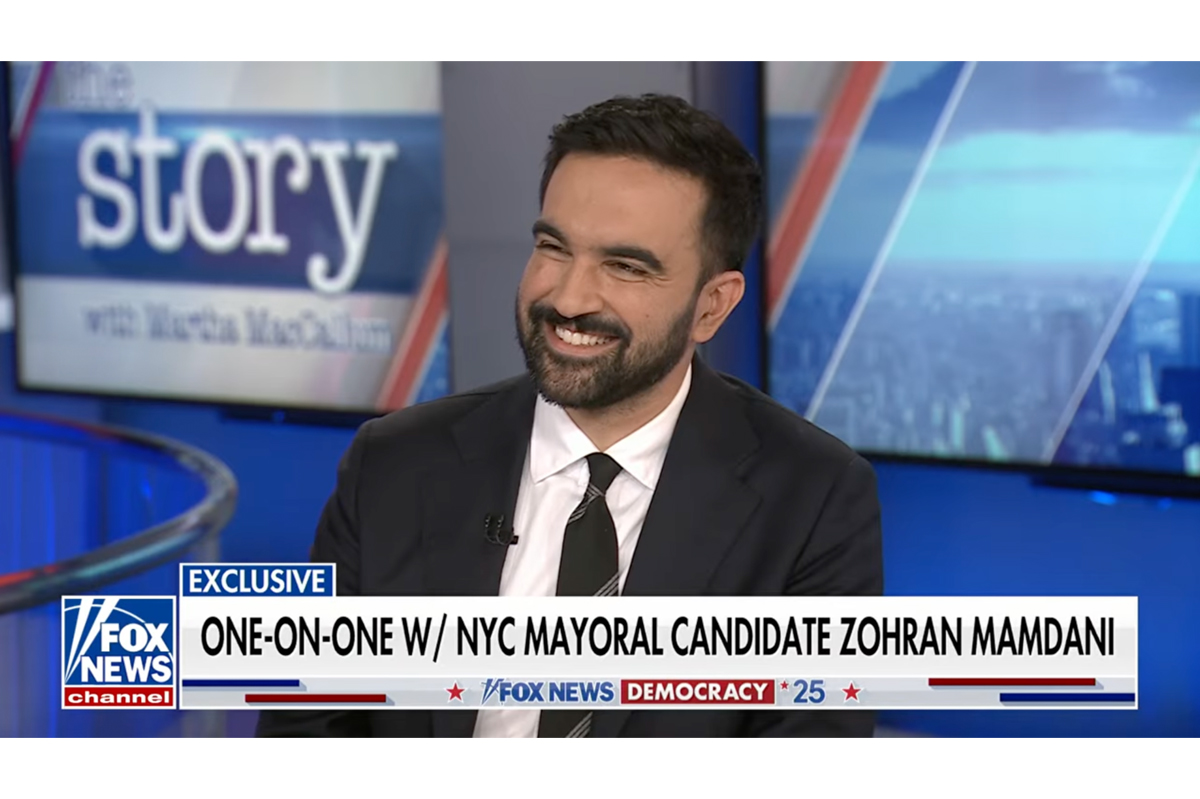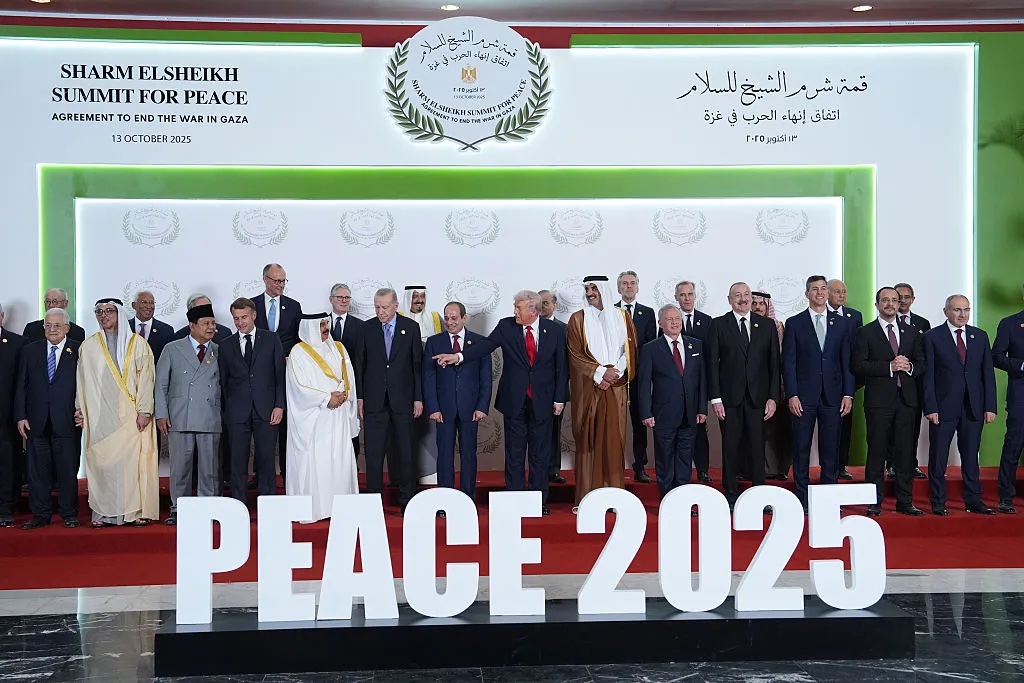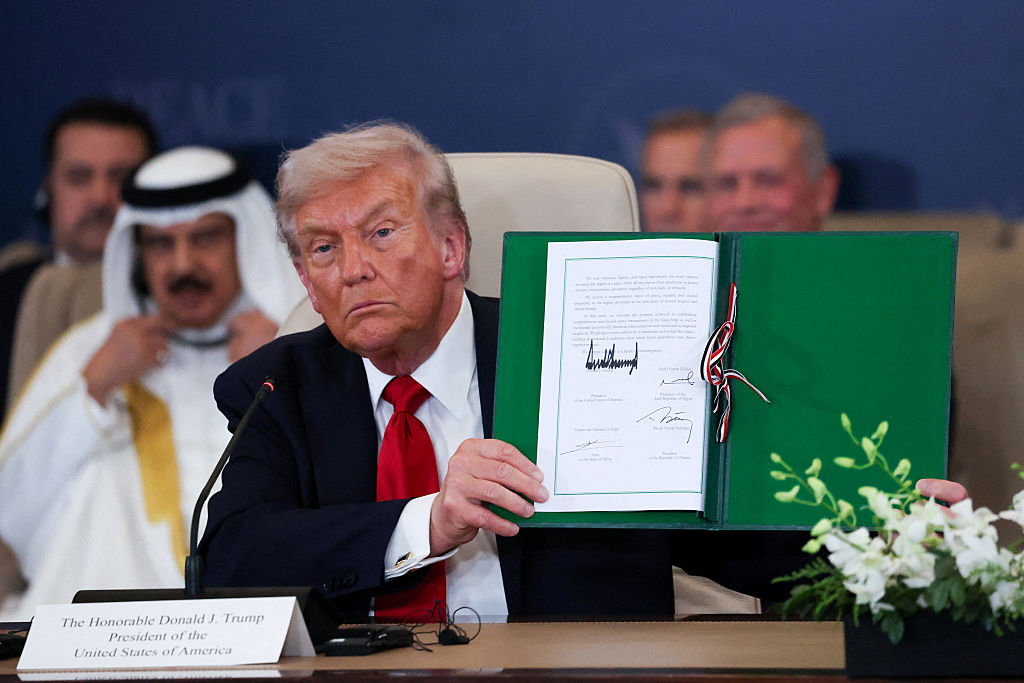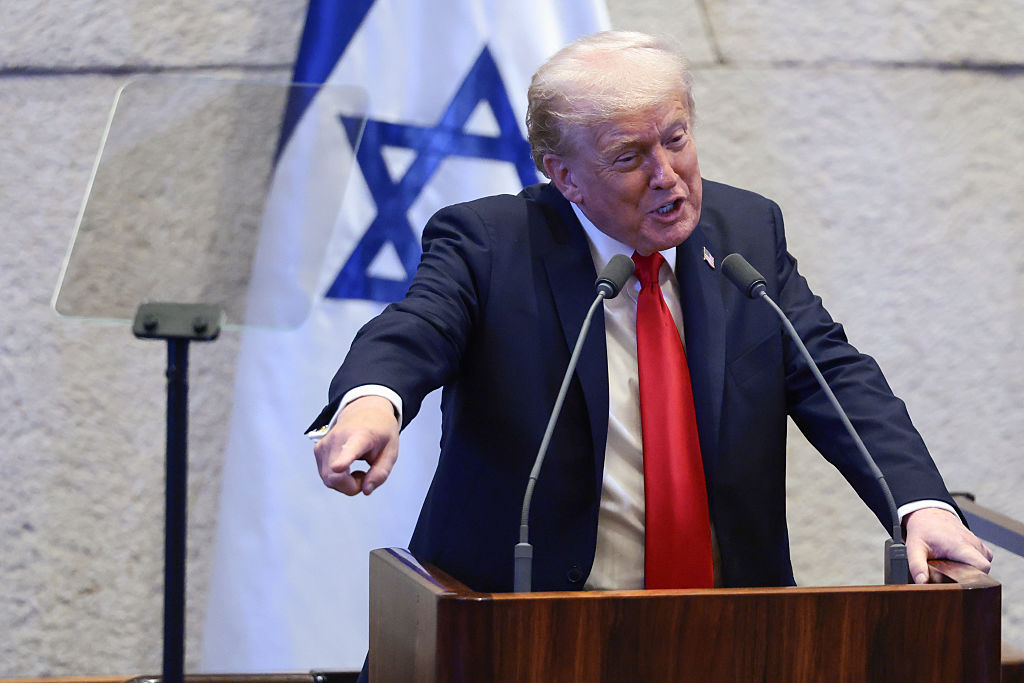The problem of resolving the tangle of conflict in the Middle East is one that has defeated generations of the world’s most experienced statesmen, and resisted the blandishments of its greatest orators. So who better now to step in than a well-groomed thirtysomething New York property developer, offering the ‘deal of the century’?
There were some hiccups to start with, sure. Jared Kushner launched his ‘Peace to Prosperity’ workshop in Bahrain with a cocktail party – alcohol not being traditionally the thing with Muslims. And it was boycotted from the off by the Palestinian Authority.
Still, he had a bash. And in doing so proved himself neither a diplomat (‘today is not about the political issues,’ he said – setting boldly aside the entire substance of the conflict) nor – our primary concern here – an orator.
‘At its apex the commercial traffic on the desert routes through Arabia culminating in Gaza was so dense that historians compared it to an army on the march,’ he said in his curiously Max Headroom-like android monotone. ‘But in recent years for much of the Middle East and longer for the Palestinians, the only armies on the march have been… armies.’
Here is Kushner’s rhetoric in miniature. There’s the unthinking metaphor – a dense apex… dense like an army, and a culminating army at that – and the dreadful bathos of a play on words that just doesn’t work.
Another random sally: ‘For too long, the Palestinian people have been trapped in an inefficient framework of the past. The Peace to Prosperity vision is a modern framework for a brighter and more prosperous future.’
Trapped in a framework… an inefficient framework. Our framework is different. It’s a vision. For a – snore – brighter and more prosperous future.
‘President Trump and America have not given up on you,’ Kushner intoned. ‘This workshop is for you. The vision we developed and released, if executed correctly, will lead to a better future for the Palestinian people, a future of dignity, prosperity and opportunity.’
Here’s an attempt at apostrophe – reaching out directly to his audience. But who is this ‘you’? Did he mean the Palestinians, who weren’t there? And again with the abstract nouns! This ‘vision’ – the framework presumably – has been developed and released (odd expression; makes it sound like a horde of GM hamsters in a disaster movie), but now needs to be ‘executed properly’ (probably what needs doing to the hamsters) in order to lead to (snore again) a ‘better future’, whose definition is made no clearer by tagging on that limp tricolon of ‘dignity, prosperity and opportunity’.
So obviously and woodenly reading from a script is a mark against any speaker. So obviously and woodenly reading from a script this bad makes you look doubly insincere. Who writes this stuff down? Who approves it? Who adopts it as their own?
‘You can change your course for the positive if we are willing to try new things and think outside the traditional box’ he continued. A political speech ordinarily tries to create a unity between the ‘I’ of the speaker and the ‘you’ of the spoken-to. Here, as above, he seems to do the opposite: you are changing course; we are trying new things. The relationship between the former and latter is unclear: who’s in charge of the course? Does our thinking change your course? Is ‘positive’ a direction? Where is this traditional box, and is it hand-carved? Will our course take us outside the box, or perhaps just past it in the manner of a fly-by? Maybe it will culminate in the box.
‘Economic growth and prosperity for the Palestinian people are not possible without an enduring and fair political solution to the conflict,’ he said. Also: ‘Agreeing on an economic pathway forward is a necessary condition to resolving the previously unsolvable political issues.’
This traditional box is, I conclude from that, the one that traditionally held Schrödinger’s cat. And though we can applaud any effort to bring peace to the Middle East, it seems fair to suspect that Jared Kushner’s oratory won’t be the thing that does it.
Sam Leith is the author of Words Like Loaded Pistols: Rhetoric from Aristotle to Obama (Basic Books).



